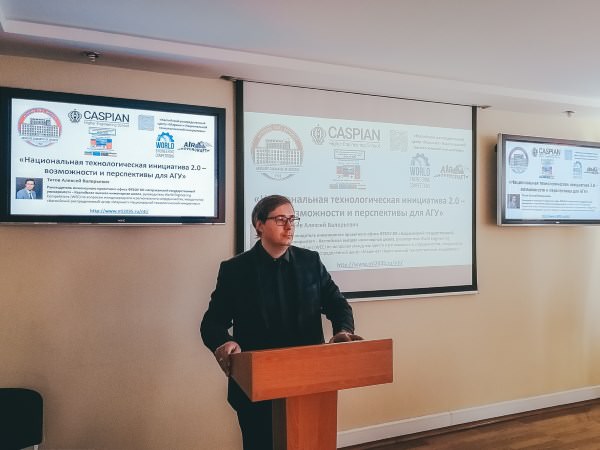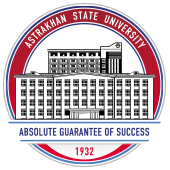Astrakhan State University Moves Towards Digital Transformation
 12.02.2019
12.02.2019
Another meeting of the ASU top management saw the discussion on prospects of transition to a “digital university” and possibilities of using the ecosystem of the National Technology Initiative 2.0.
Aleksey Rybakov, the Director of the Institute of Physics & Mathematics, and Sergey Buzychkin, the Head of the Project Office, addressed the audience with the report “Digital Transformation of University: Background, Implementation & Prospects”.
In January 2019, representatives of ASU participated in a communication session for HEI transformation teams, organized by the National Technology Initiative Institute 20.35. During the session, more than twenty digital transformation teams from different Russian HEIs undertook a study course and presented their own vision of improving educational processes. Leading Russian experts gave an insight into the international experience and successful projects on creating individual educational paths, introducing digital elements and implementing projects with start-up teams.
The main areas of development and top-priority events, proposed for implementation at ASU, were presented at the university top management meeting. According to Konstantin Markelov, the ASU Acting Rector, Astrakhan State University is going to take a number of important steps on digital transformation and to participate in an intensive educational course of the University 20.35, which will be held in Skolkovo.
Today, ASU students and teachers are offered an opportunity to participate in the National Technology Initiative in all its formats — the NTI competition, University 20.35, as well as to take part in UMNIK-NTI and START-NTI competitions.
Having listened to the presented reports, the participants made a decision to continue their activities on raising the efficiency and intensification of classes by means of active application of modern information technologies and development of students’ cognitive interest in the study process.


